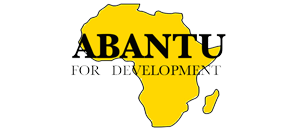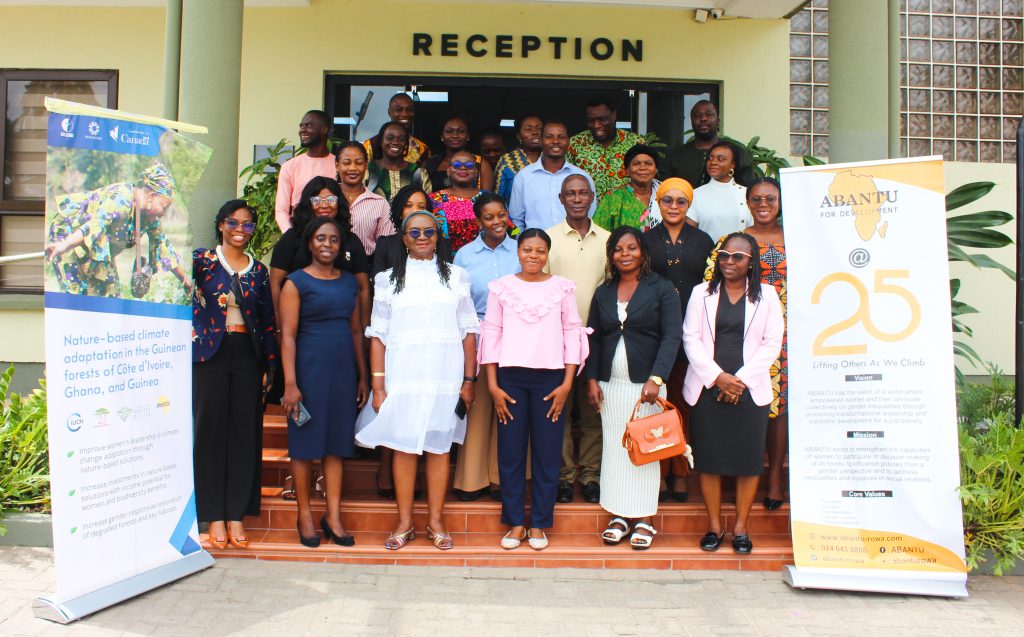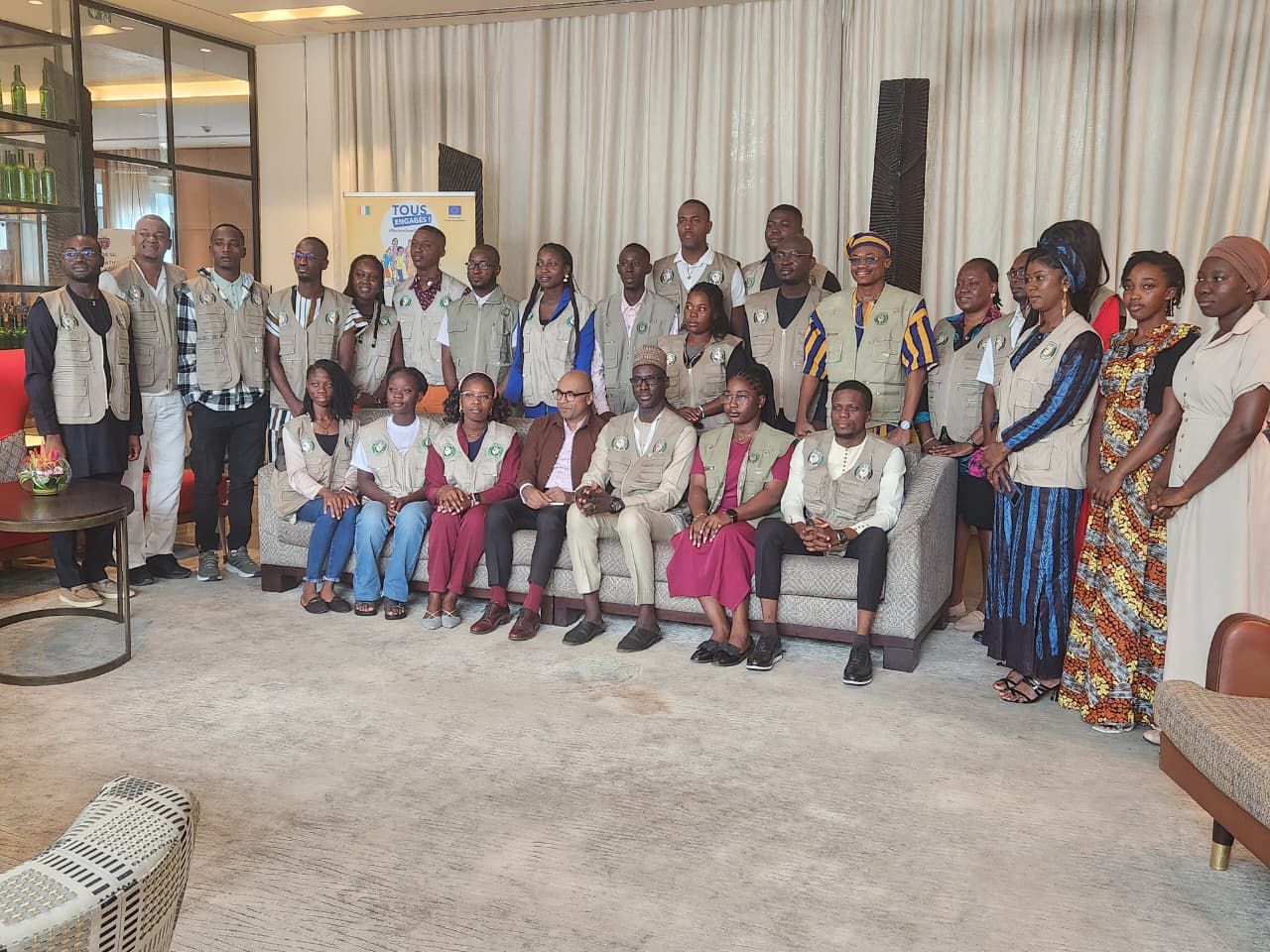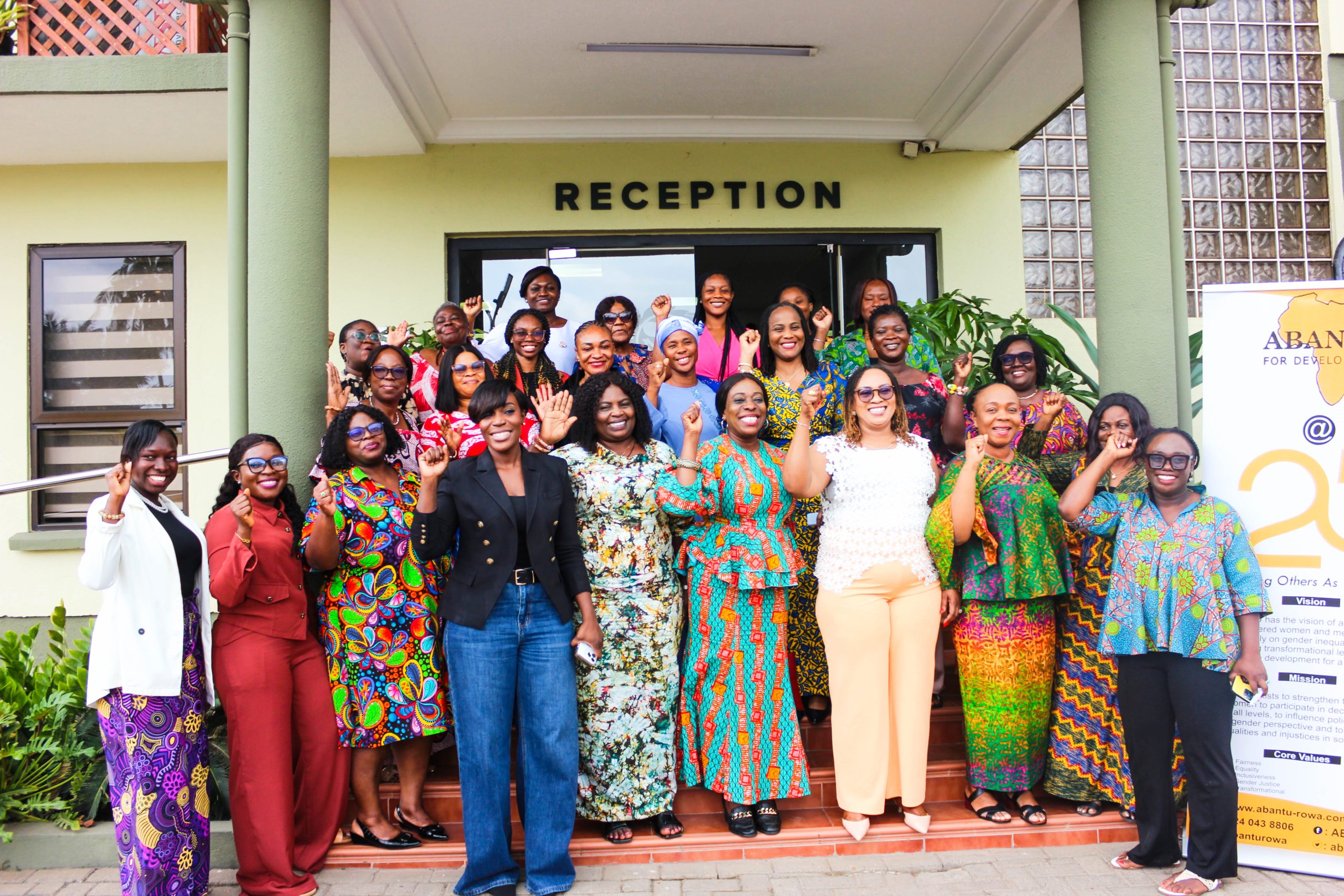ABANTU for Development, as part of its ongoing commitment to advancing gender equality within climate governance, convened a Stakeholder Engagement on Strengthening the Gender Responsiveness of Ghana’s Nationally Determined Contributions (GH-NDCs) under the Nature-Based Solutions in the Guinean Forest of West Africa Project (NbS Project).
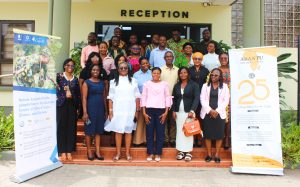
The session brought together gender advocates, climate experts, government representatives, civil society actors and development partners to collectively examine how Ghana’s climate commitments can better reflect and address the needs, priorities and contributions of women.
Nationally Determined Contributions (NDCs) represent a country’s climate action commitments under the Paris Agreement. As Ghana prepares its NDC 3.0, there is an urgent need to ensure that these commitments are gender-responsive, meaning they recognise and respond to the different ways climate change impacts women, men, and marginalised groups.
ABANTU’s role under the NbS Project places emphasis on enhancing women’s agency, leadership, and participation in climate response efforts, making this engagement critical in shaping inclusive national climate strategies.
The engagement covered several important thematic areas:
1. ABANTU’s Role within the NbS Project
Participants were updated on ABANTU’s contributions in promoting women’s leadership in climate solutions, particularly within forest conservation and nature-based climate strategies in West Africa.
2. Status of Ghana’s NDC 3.0 and Areas for Gender Strengthening
Discussions highlighted progress made in Ghana’s climate planning, while pointing out gaps where gender considerations require stronger integration. Participants acknowledged that women remain disproportionately affected by climate impacts and therefore must be central in designing solutions.
3. Gender Mandate of the UNFCCC and Implications for Ghana
The session examined global frameworks promoting gender equity in climate action, including UNFCCC gender mandates. Participants reflected on how these commitments should guide Ghana’s approach as the country prepares for COP 30.
4. Group Discussions and Shared Recommendations
Stakeholders worked together in group sessions to develop practical recommendations for improving gender-responsive planning.
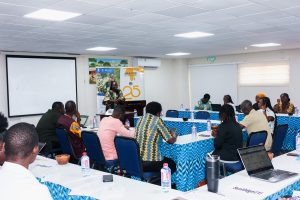
The engagement reaffirmed that effective climate policy cannot be achieved without gender equality. Women in Ghana and across the region play vital roles in agriculture, water management, natural resource conservation and community resilience, yet they continue to be underrepresented in decision-making spaces.
ABANTU for Development remains committed to ensuring that climate governance processes are inclusive, equitable, and grounded in the lived experiences of women.
